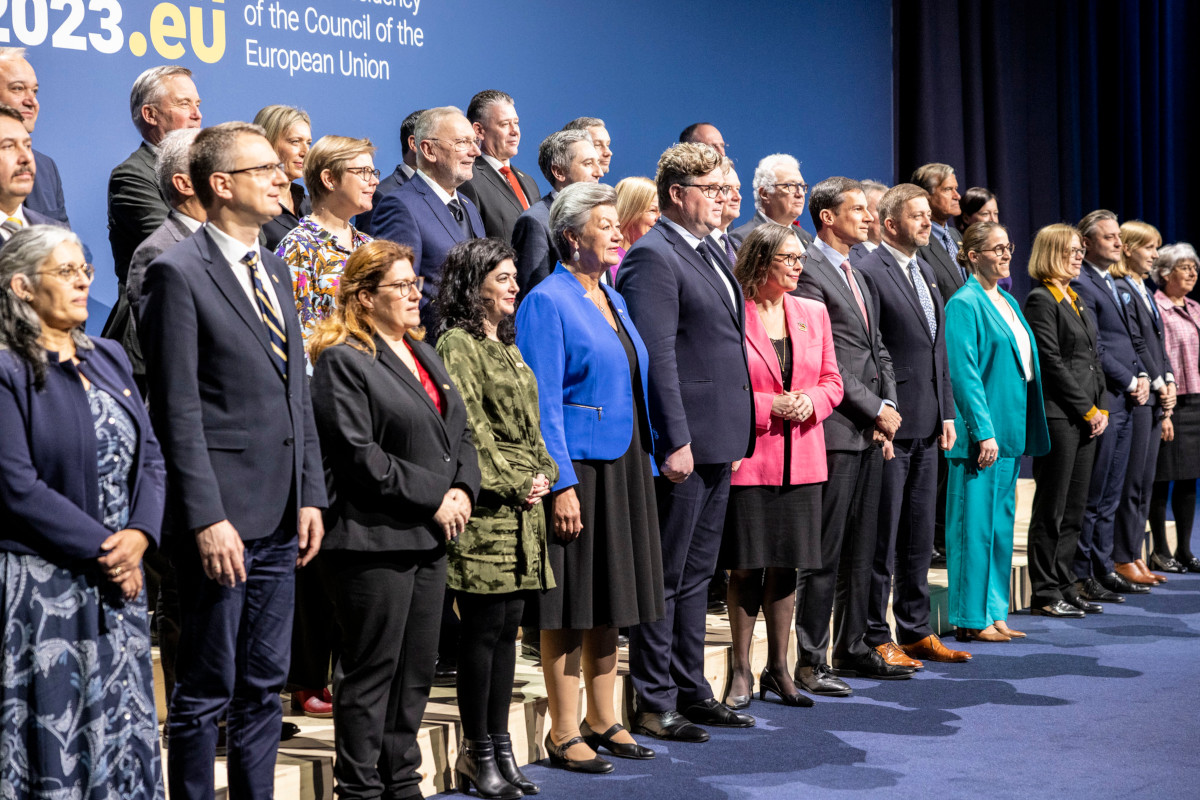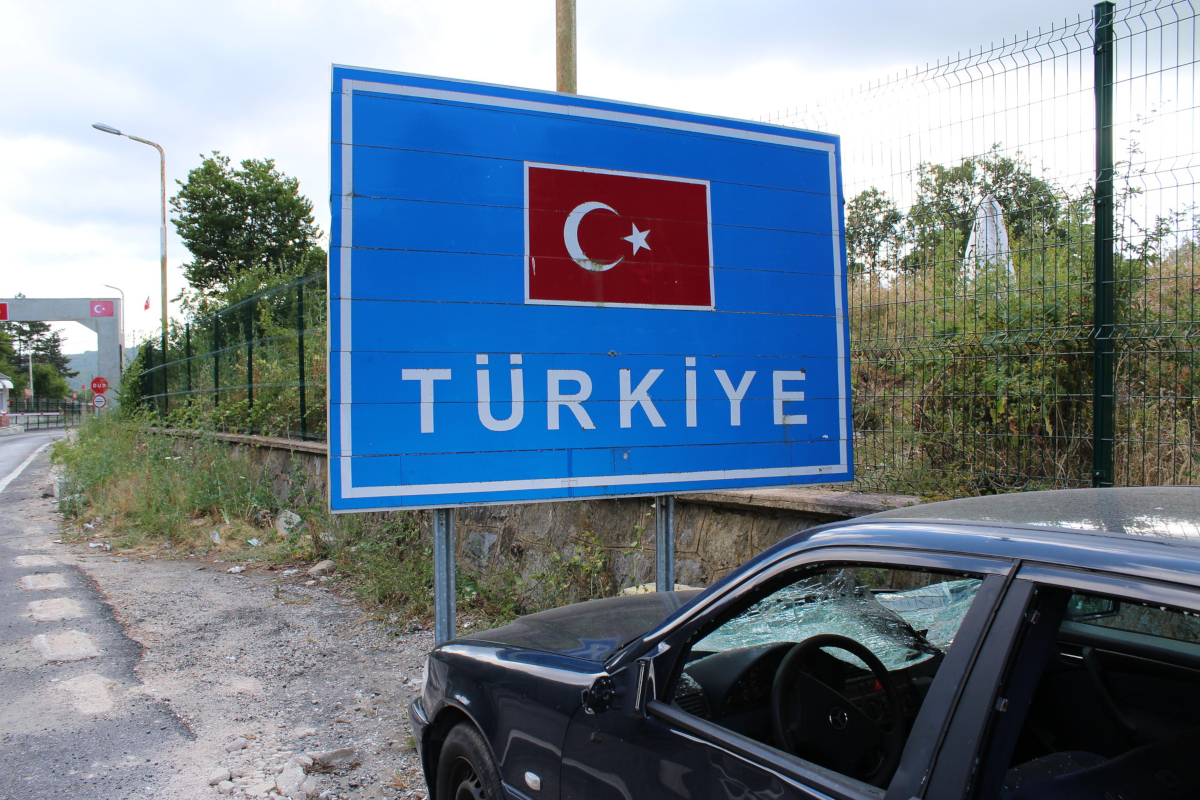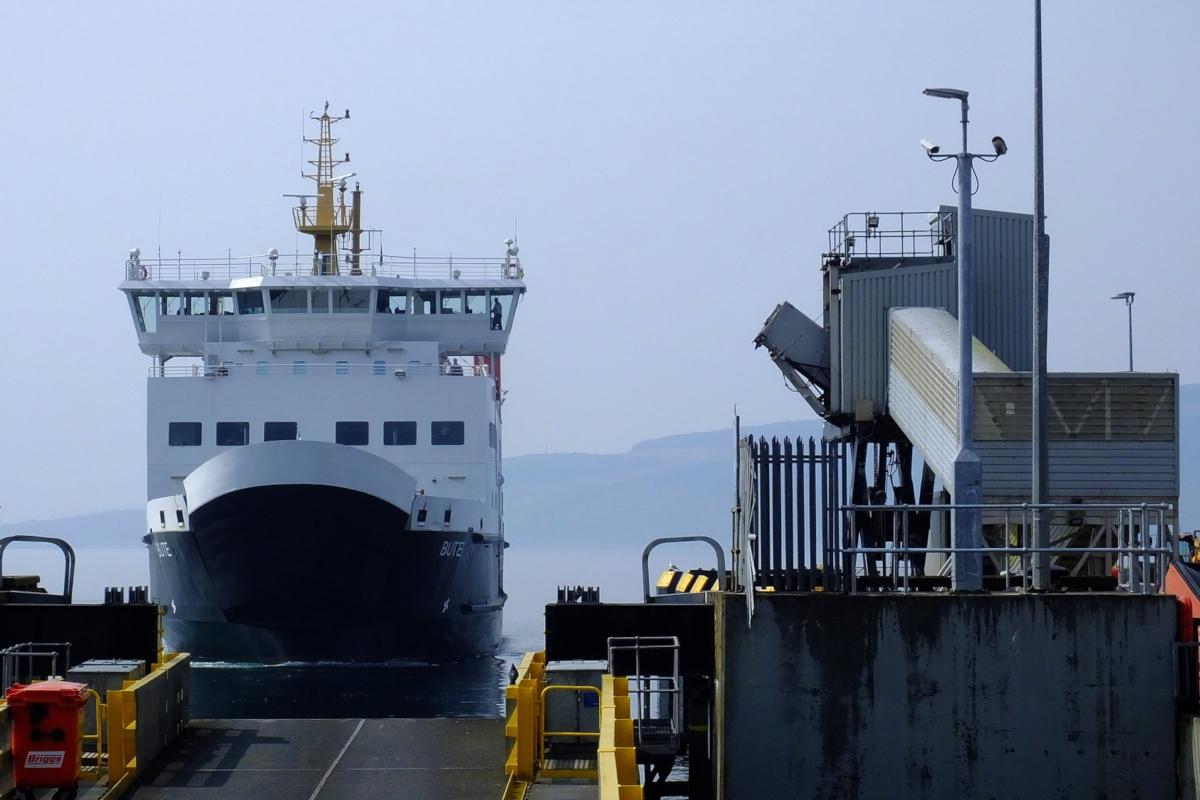Border externalisation needs “whole-of-government approach” says Swedish Presidency
Topic
22 March 2023
The Swedish Council Presidency has reiterated the longstanding call for “a true whole-of-government approach and sustained engagement” at all levels to implement EU plans to externalise migration and border control, in a document setting out plans to follow up on European Council conclusions agreed in February.
Support our work: become a Friend of Statewatch from as little as £1/€1 per month.

Image: Swedish Presidency of the Council of the EU, CC BY-ND 2.0
The “external dimension”
In a section on “the external dimension of migration” the Presidency calls for “intensified EU engagement,” with the European Commission, European External Action Service, EU agencies and member states coordinating to fully implement action plans for the central Mediterranean and western Balkans. New action plans are envisaged for the eastern Mediterranean and western Mediterranean/Atlantic routes.
Statewatch previously reported that the central Mediterranean action plan calls for “more intensive police cooperation with repressive states and externalisation of borders instead of relocation of refugees, in full knowledge of the dire situation for people seeking safety, in particular in Libya.”
The Presidency also calls for pooling efforts, a “team-Europe spirit” and stronger cooperation with third countries to develop “mutually beneficial partnerships and filling the Talent Partnerships with content”.
This will include stepping up information exchange between EU institutions, agencies and member states on “high-level outreach to third countries,” creating opportunities for better coordination and the possibility of drawing up “common messages” to “ensure that the EU speaks with one voice”.
A role is foreseen for MOCADEM, the operational coordination mechanism for the external dimension of migration, in helping develop that voice; and the mechanism is also set to work more closely with Coreper and other Council bodies in pursuit of “policy coherence”. The note also says that EU delegations and member state embassies and representations should work towards developing and implementing the EU’s action files with their counterparts in third countries.
The Swedish document (pdf) comes alongside a letter to the European Council from Ursula von der Leyen, setting out the actions taken to implement the Council's conclusions of 9 February. The draft conclusions of the European Council make a passing mention to migration, calling for "speedy progress" on all ongoing plans.
“A European challenge that requires a European response”
The “external dimension” is not the only issue raised in the note, which in an introductory section says that systematic data monitoring is needed to improve “situational awareness,” enabling early detection of “movements of concern”.
The Council has worked to adapt the “Blueprint network and situational awareness reports” to focus on “early warning and shared analysis”, whilst enhancing the network’s coordination capacity and adapting the structure of the Integrated Situational Awareness and Analysis Capability (ISAA) report.
Citing the European Council conclusions, the Presidency notes that migration is “a European challenge that requires a European response,” and the note also looks at the external borders and search and rescue operations, the “internal dimension” and the implementation of the “Dublin roadmap” agreed in November 2022.
External borders and search and rescue
The “role of private entities” in sea rescues came back onto the highest political agenda in November last year, when it was discussed by the Justice and Home Affairs Council, although the note acknowledges that most people who arrive do so autonomously or following state-led rescues.
“Ministers underlined the need to prevent loss of lives at sea” and backed a revival of the European Contact Group on Search and Rescue with the goal of enhancing “coordination and cooperation among all relevant actors,” although the note does not mention recent attempts by the German authorities to hinder the work of private sea rescue groups.
Topics to be addressed by the Contact Group include:
- “improving situational awareness in the Central Mediterranean,” although current capabilities do not necessarily translate into rescues or prevent rights violations;
- “enhancing cooperation amongst competent authorities on SAR”;
- “achieving a better overview of existing law and policies concerning private vessels involved in SAR”; and
- “possible engagement with the International Maritime Organization (IMO).”
There is no detail on what engagement with the IMO may relate to. The body gave official recognition to the Libyan search and rescue zone in December 2017. A Statewatch analysis published in 2020 argued that the zone is a “convenient fiction” that “allows Italy and Malta to relinquish their duties to rescue and receive migrants who may be in danger during sea crossings.”
Meanwhile, the German government has recently changed shipping regulations in a way that hampers the work of sea rescue organisations.
Internal dimension
On the internal dimension of migration, the Presidency notes its ongoing commitment to seeking agreement from the June JHA Council meeting on “a general approach on the Asylum and Migration Management Regulation and the Asylum Procedure Regulation.”
However, this still leaves multiple other pieces of legislation under negotiation or in limbo. The intention is to stick to the joint roadmap signed by the Council and the Parliament and adopt all legislation related to the Pact by spring next year.
Dublin Roadmap
Although reform of the Common European Asylum System (CEAS) is under negotiation, the Presidency’s note highlights the importance of implementing the current acquis in order to reduce “secondary movements” and “possible abuses”, and to make improvements on the “continuous low rate of transfers under the Dublin Regulation.”
The importance of systematically registering people who cross the EU’s external borders means that progress in negotiations on the revised Eurodac Regulation is “particularly welcome”.
The Dublin Roadmap, meanwhile, was agreed in November 2022 at a meeting of the Council’s Strategic Committee on Immigration, Frontiers and Asylum, and aims to improve implementation of transfers under the Dublin III Regulation and ensure compliance with the asylum acquis by member states.
The delivery of actions set out in the Roadmap will be discussed at the next Dublin Contact Committee on 16 March, to improve flexibility regarding incoming transfers, reduce the length of Dublin procedures and to increase and accelerate such transfers.
Documentation
- Asylum and migration: external and internal dimensions (Council doc. 6748/23, LIMITE, 27 February 2023, 6748/23, pdf)
Our work is only possible with your support.
Become a Friend of Statewatch from as little as £1/€1 per month.
Spotted an error? If you've spotted a problem with this page, just click once to let us know.

